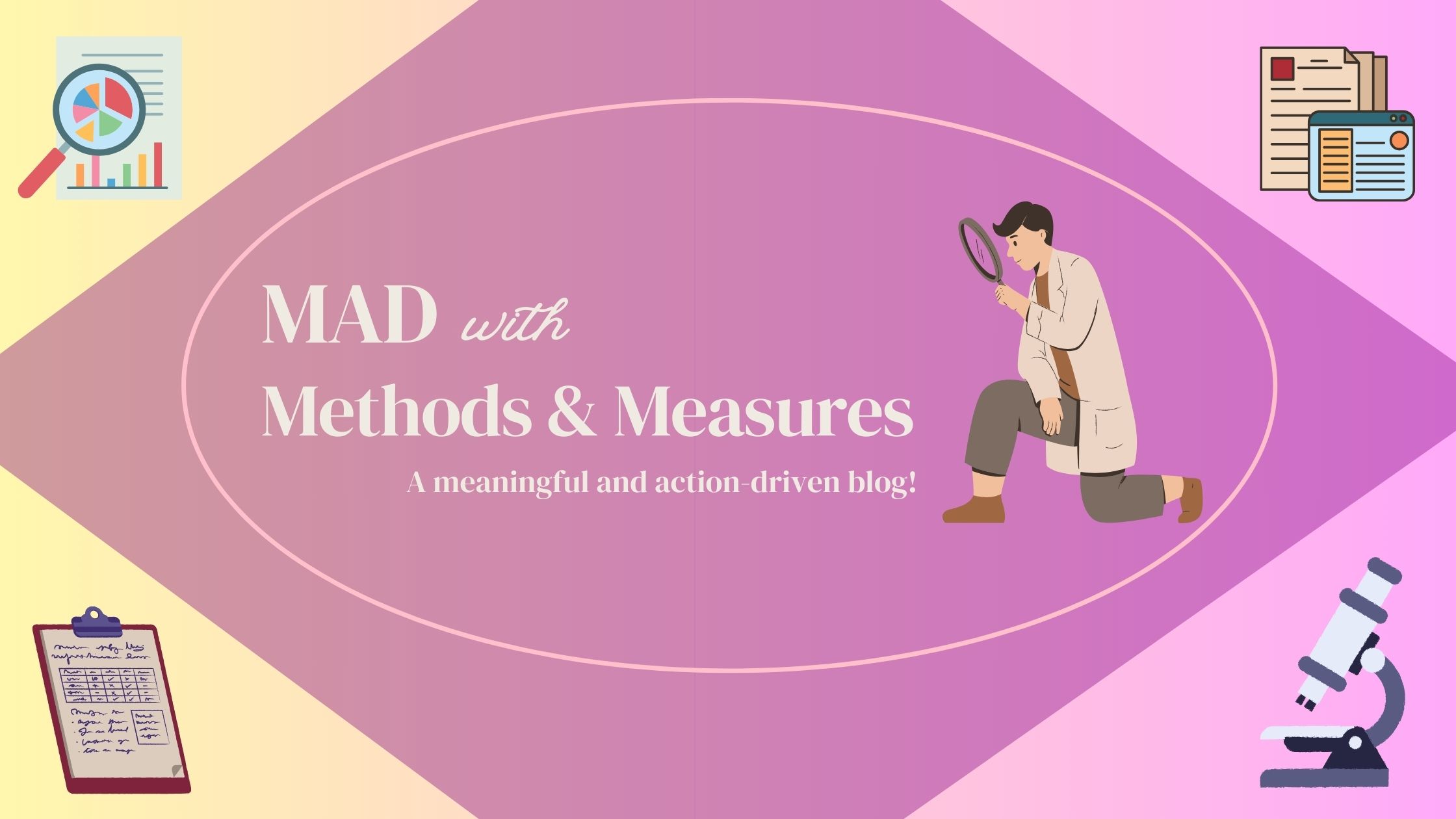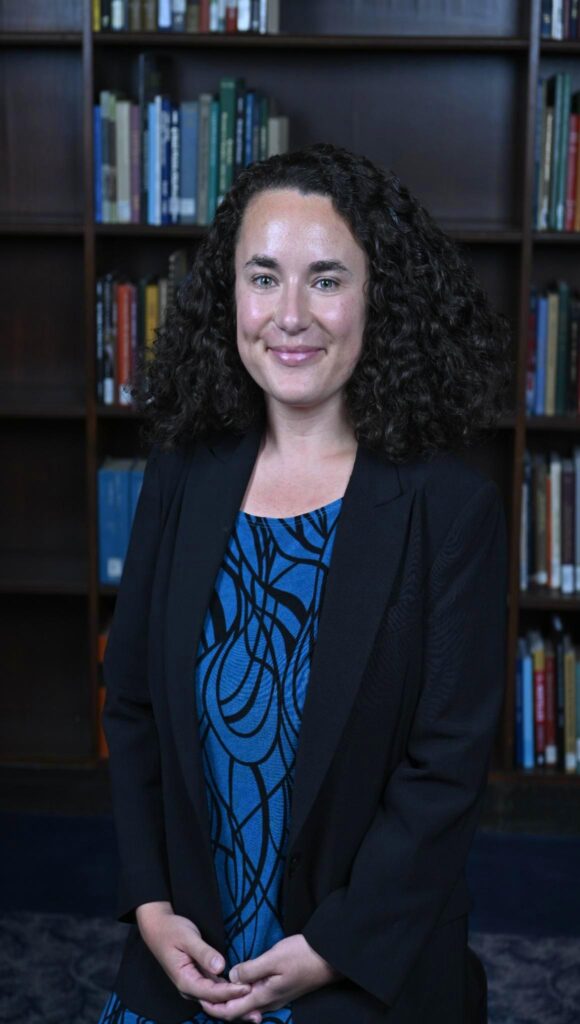Navigating Ambiguity and Asymmetry: from Undergraduate to Graduate Student and Beyond

By Jessica Osborne, Ph.D. and Chelsea Jacobs

Jessica is the Principal Evaluation Associate for the Higher Education Portfolio at The Center for Research Evaluation at the University of Mississippi. She earned a PhD in Evaluation, Statistics, and Measurement from the University of Tennessee, Knoxville, an MFA in Creative Writing from the University of North Carolina, Greensboro, and a BA in English from Elon University. Her main areas of research and evaluation are undergraduate and graduate student success, higher education systems, needs assessments, and intrinsic motivation. She lives in Knoxville, TN with her husband, two kids, and three (yes, three…) cats.
My name is Chelsea Jacobs, and I’m a PhD student in the Evaluation, Statistics, and Methodology (ESM) program at the University of Tennessee, Knoxville. I’m especially interested in how data and evidence are used to inform and improve learning environments. In this post, I’ll share reflections — drawn from personal experience and professional mentorship — on navigating the ambiguity and asymmetry that often define the transition from undergraduate to graduate education. I’ll also offer a few practical tips and resources for those considering or beginning this journey.

Transitioning from undergraduate studies to graduate school is an exciting milestone, full of possibilities and challenges. For many students, it also marks a shift in how success is measured and achieved. We — Jessica Osborne, PhD, Principal Evaluation Associate at The Center for Research Evaluation at the University of Mississippi, and Chelsea Jacobs, PhD student at the University of Tennessee — have explored these topics during our professional networking and mentoring sessions. While ambiguity and asymmetry may exist in undergraduate education, they often become more pronounced and impactful in graduate school and professional life. This post sheds light on these challenges, offers practical advice, and points prospective graduate students to resources that can ease the transition.
From Clarity to Exploration: Embracing Ambiguity in Graduate Education
In undergraduate studies, assessments often come in the form of multiple-choice questions or structured assignments, where answers are concrete and feedback is relatively clear-cut. From a Bloom’s Taxonomy perspective, this often reflects the “remembering” domain. Success may align with effort — study hard, complete assignments, and you’ll likely earn good grades.
Graduate school, however, introduces a level of ambiguity that can be unexpectedly challenging. Research projects, thesis writing, and professional collaborations often lack clear guidelines or definitive answers. Feedback becomes more subjective, reflecting the complexity and nuance of the work. For example, a research proposal may receive conflicting critiques from reviewers, requiring students to navigate gray areas with the support of advisors, peers, and faculty.
These shifts are compounded by a structural difference: while undergraduates typically have access to dedicated offices and resources designed to support their success, graduate students often face these challenges with far fewer institutional supports. This makes it all the more important to cultivate self-advocacy, build informal support networks, and learn to tolerate uncertainty.
Though ambiguity can feel overwhelming, it’s also an opportunity to develop critical thinking and problem-solving skills. Graduate school encourages asking deeper questions, exploring multiple perspectives, and embracing the process of learning rather than focusing solely on outcomes.
How to Navigate Ambiguity
Embrace the Learning Curve: Ambiguity is not a sign of failure but a necessary condition for growth—it pushes us beyond routine practice and encourages deeper, more flexible thinking. Seek opportunities to engage with complex problems, even if they feel overwhelming at first, as these moments often prompt the most meaningful development.
Ask for Guidance: Don’t hesitate to seek clarification from advisors, peers, or those just a step ahead in their academic journey. Opening up about your struggles can reveal how common they are — and hearing how others have navigated doubt or setbacks can help you build the resilience to keep moving forward. Graduate school can be a collaborative space, and connection can be just as important as instruction.
In the ESM program at UTK, we’re fortunate to be part of a collaborative, non-competitive graduate environment. This isn’t the case for all graduate programs, so it’s an important factor to consider when choosing where to study.
Uneven Roads: Embracing the Asymmetry of Growth
As an undergraduate, effort is often emphasized as the key to success, but the relationship between effort and outcome isn’t always straightforward. Study strategies, access to resources, prior preparation, and support systems all play a role — meaning that even significant effort doesn’t always lead to the expected results. However, success can align with effort—study hard, complete assignments, and you’ll likely earn good grades.
In graduate school and professional life, this symmetry can break down. You might invest months into a research paper, only to have it rejected by a journal. Grant proposals, job applications, and conference submissions often yield similar results—hard work doesn’t always guarantee success, but it does guarantee learning.
This asymmetry can be disheartening, but it mirrors the realities of many professional fields. Learning to navigate it is crucial for building resilience and maintaining motivation. Rejection and setbacks are not personal failures but part of growth.
How to Handle Asymmetry
Redefine Success: Focus on the process rather than the outcome. Every rejection is an opportunity to refine your skills and approach.
Build Resilience: Mistakes, failures, and rejection are not just normal—they’re powerful learning moments. These experiences often reveal knowledge or skill gaps more clearly than success, making them both memorable and transformative. Cultivating a growth mindset helps reframe setbacks as essential steps in your development.
Seek Support: Surround yourself with a network of peers, mentors, and advisors who can offer perspective and encouragement.
Resources for Prospective Graduate Students
Workshops and seminars can help students build essential skills — offering guidance on research methodologies, academic writing, and mental resilience.
Here are a few resources to consider:
- Books: Writing Your Journal Article in Twelve Weeks by Wendy Laura Belcher is excellent for developing academic writing. The Writing Workshop, recommended by a University of Michigan colleague, is a free, open-access resource.
- Research Colloquium: UTK students apply research skills in a colloquium setting. See Michigan State University’s Graduate Research Colloquium for a similar example. These events are common — look into what your institution offers.
- Campus Resources: Don’t overlook writing centers, counseling centers, and mental health services. For example, Harvard’s Counseling and Mental Health Services provides a strong model. Explore what’s available at your school.
- Professional Networks: Join organizations or online communities in your field. This can lead to mentorship, which is invaluable — and worthy of its own blog post.
Final Thoughts
Ambiguity and asymmetry are not obstacles to be feared but challenges to be embraced. They help develop the critical thinking, problem-solving, and resilience needed for both graduate school and a fulfilling professional career. By understanding these aspects and using the right resources, you can navigate the transition with confidence.
To prospective graduate students: welcome to a journey of growth, discovery, and MADness — Meaningful, Action-Driven exploration of methods and measures. We’re excited to see how you’ll rise to the challenge.